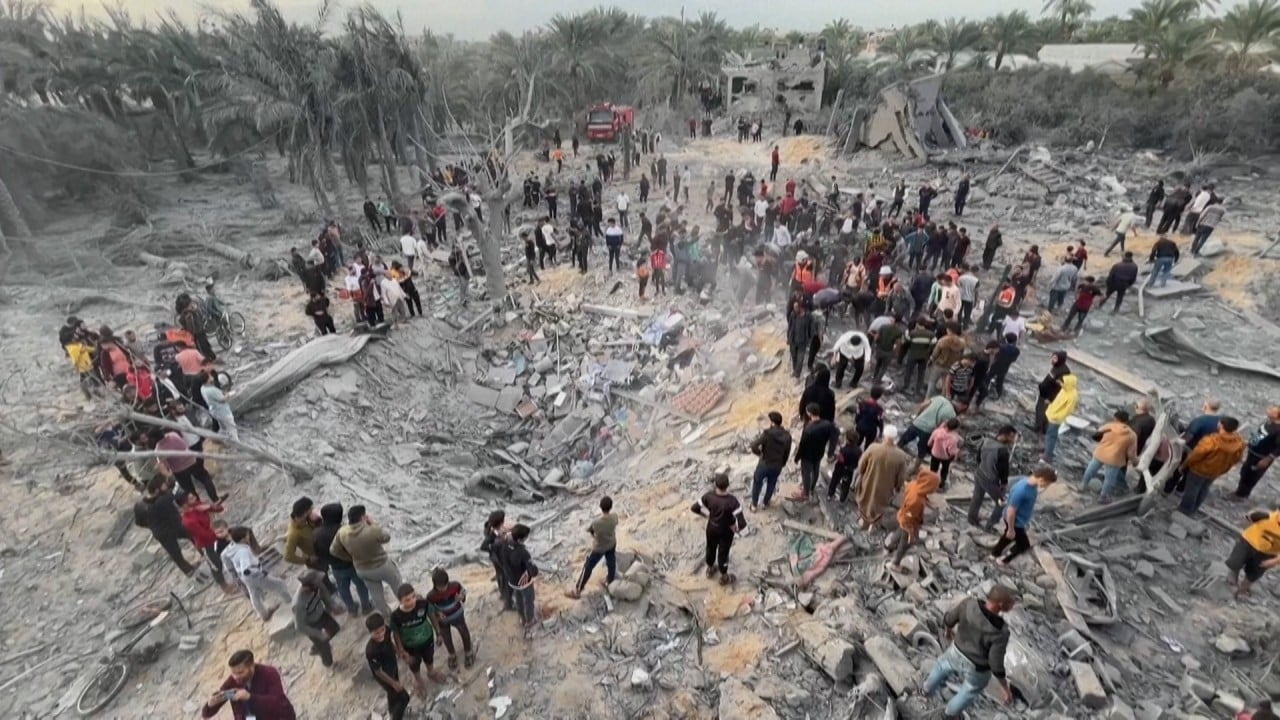China poised to play peacekeeper and advocate in post-war Gaza, but US holds key to truce, analysts say
[ad_1]
“Israel is unlikely to eliminate Hamas with its war, and an Israeli occupation will surely backfire. This means peacekeeping could be needed one day,” he said.
China has 8,000 peacekeepers in the UN’s standby force, but only a couple thousand Chinese peacekeeping troops are currently deployed. Between 1992 and 2018, the country’s army sent more than 35,000 military personnel to participate in 24 United Nations peacekeeping operations around the world.
But Zhou added that Beijing had limited say on Israel’s decision to agree to a ceasefire or post-war Gaza’s future governance, noting that China did not have the power to stop Israel, unlike Washington.
“After the ceasefire, the exact role that China can play will depend largely on the understanding reached by the parties. China’s role in Gaza, be it as potential peacekeeping forces or as diplomatic advocates, will be based on Israel’s solution for the area,” he added.
Israel remains sceptical of plans to deploy international peacekeeping forces, according to Bloomberg.
At least 14,500 Palestinians have been killed in Israeli bombardments since the Hamas attack last month, and at least 6,000 of the fatalities were children while were 4,000 women, according to Gazan authorities.
Israel has described its military actions in Gaza as self-defence following an attack by Hamas last month in which more than 1,200 people were killed and roughly 240 taken hostage – some of whom have since been found dead.
Tuvia Gering, a researcher with the Institute for National Security Studies, agreed that Israel might be reluctant to welcome an international power to oversee Gaza, citing the limited progress of the United Nations Interim Force In Lebanon (UNIFIL), a peacekeeping force in Lebanon.
UNIFIL was created to oversee the withdrawal of Israeli troops from southern Lebanon after Israel’s 1978 invasion. The mission was expanded to allow Lebanese troops to extend their authority in the south of the country, but also called for a full ceasefire between Israel and Hezbollah, the Iran-backed Lebanese militant group and a legal political party. The ceasefire goal has not been achieved.
Gering said UNIFIL’s failure to keep the peace between Israel and Hezbollah showed its “incompetence” in dealing with the issue in accordance with the UN resolution, and could make Israel doubt the UN peacekeeping force’s credibility.
UNIFIL currently has around 400 Chinese troops, according to official UN data.
China to host talks with foreign ministers from Arab and Islamic countries
China to host talks with foreign ministers from Arab and Islamic countries
Economic reconstruction might be another contribution that Beijing can make, according to Carice Witte, founder of Sino-Israel Global Network and Academic Leadership, an Israel-based think tank.
She said as the war ends, the Gaza Strip could end up under the influence of a coalition led by Gulf countries and Egypt with “robust Palestinian leadership”.
“At that point, China, a supporter of the Arab position, can play a positive role in the rebuilding of Gaza and contribute to providing the Palestinian people with jobs and hope,” she said.
But Gering noted that China was hardly interested in investing in Gaza’s economic reconstruction.
“It’s hard for me to imagine China becoming involved by having Chinese workers in this region, so long as political and physical security is not guaranteed.”
Yahia Zoubir, a non-resident senior fellow at the Doha-based Middle East Council on Global Affairs, agreed that Israel did not plan on reoccupying Gaza and the governance might be handed over to the Palestinian Authority.
Zoubir said Hamas would be “difficult” to eliminate, but if Israel were to succeed in doing so, it would still need to be concerned about “other Palestinian resistance movements” that could be even more radical than Hamas.
He said Beijing would continue to try to sway other governments in the Global South to counter the US and EU, which have “condoned Israel”.
“Beijing may exploit the cracks in the Western world to exert further pressure on the political process… However, the key is in Washington.”
[ad_2]
Source link






